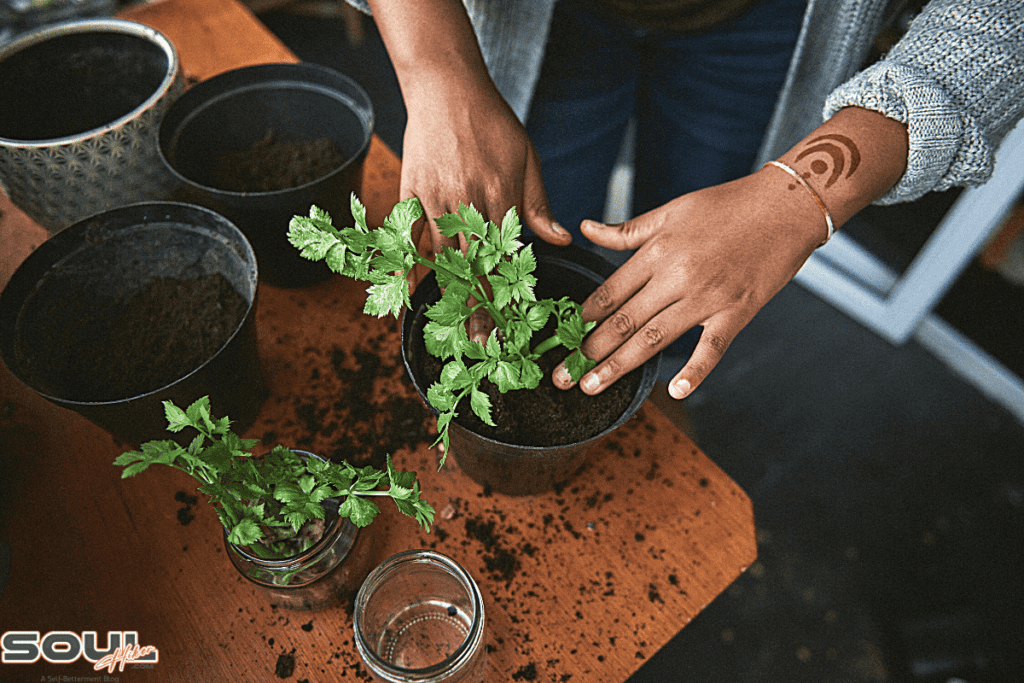Simple living, the art of minimizing and focusing on the essentials, offers a pathway to self-actualization, the process of realizing one’s full potential. By stripping away the superfluous and embracing a life of simplicity, individuals can uncover a deeper sense of purpose and fulfillment. This journey towards a simplified existence not only reduces stress and enhances personal growth but also aligns with the natural rhythms of life, fostering a sustainable and mindful lifestyle. This article explores the forgotten connection between the benefits of living a simple life and self-actualization, revealing how the pursuit of less can lead to a life of more meaning and satisfaction.
Table of Contents
Benefits Of Living A Simple Life
Living a simple life offers numerous advantages that contribute significantly to personal well-being. Firstly, it leads to reduced stress and anxiety, as fewer possessions and desires mean fewer worries and distractions.
This simplicity allows for an increased focus on personal values and goals, helping individuals understand what truly matters to them. It also cultivates an enhanced appreciation for the small things in life, encouraging gratitude and contentment.
Financially, simple living often results in improved financial health due to reduced spending and increased savings. Additionally, this lifestyle has a positive impact on the environment, as it typically involves consuming less and making more sustainable choices.
Living The Good Life Naturally

Embracing a simple life enables individuals to live ‘the good life’ more naturally and authentically. This involves embracing minimalism, not just in physical possessions but also in daily routines, clearing away the non-essential to focus on what truly enriches one’s life.
Connecting with nature becomes a pivotal aspect, as spending time outdoors and engaging with the natural world can lead to a greater sense of peace and grounding. In this simplified lifestyle, quality invariably trumps quantity, especially in relationships and personal possessions, fostering deeper connections and a more meaningful life experience.
Mindfulness and meditation become key practices in this journey, helping individuals live in the present moment and appreciate the simplicity of their existence.
Practical Steps to Simplify Your Life
To embark on a journey of simple living, one can start with decluttering both physical and digital spaces, which helps in reducing distractions and focusing on essentials. Adopting a minimalist mindset involves reevaluating what aspects of life are truly necessary and what can be let go, leading to a more purposeful existence.
Making conscious consumer choices is another crucial step, which involves questioning the need for purchases and opting for quality and sustainability over quantity and convenience. Also, incorporating sustainable practices into daily life not only contributes to personal well-being but also benefits the planet, embodying the essence of living simply and thoughtfully.
Creating a daily or weekly routine that reflects your most important personal and professional priorities involves identifying what truly matters to you. This ensures that your time and energy are focused primarily on these areas.
By doing so, you can avoid getting caught up in unnecessary activities and distractions, leading to a more organized and fulfilling life. A well-thought-out routine helps in maintaining a balance between work, personal interests, and relaxation, preventing burnout and enhancing overall well-being.
Learning to say no is a powerful tool that involves setting clear boundaries and being selective about the commitments and activities you choose to engage in. By saying no to tasks or engagements that do not align with your values or priorities, you can free up time and energy for what truly enriches your life. This practice helps in reducing stress and overcommitment, allowing for a more focused and intentional approach to daily living.
Challenges and Misconceptions
One of the primary challenges in adopting a simple lifestyle is navigating the misconceptions surrounding it. Many believe that simple living is only feasible for the wealthy or that it necessitates a complete abandonment of modern conveniences.
However, simple living is about making intentional choices that align with personal values and goals, regardless of income level. It is not about living in deprivation but rather about finding contentment and fulfillment in fewer, more meaningful possessions and activities.
The Realities of Simplifying Life
Transitioning to a simpler lifestyle can also present practical challenges. For many, the process of decluttering possessions, reevaluating priorities, and changing consumption habits can be daunting and emotionally taxing.
The inertia of established routines and the pressure of societal norms often make it difficult to let go of material excess and a fast-paced lifestyle. Simple living requires continuous effort and mindfulness, as it is easy to slip back into old, more complex habits without ongoing commitment and self-awareness.
Overcoming Obstacles and Embracing Change
Despite these challenges, overcoming the obstacles to simple living can lead to a more authentic and self-actualized existence. It involves embracing change, facing uncertainties, and often, confronting the fear of missing out on what mainstream society values.
Overcoming these hurdles necessitates a strong conviction in the benefits of a simplified life, supported by a community of like-minded individuals or resources that provide guidance and encouragement. By addressing these challenges head-on, individuals can successfully navigate the path to a simpler, more intentional, and fulfilling life.
